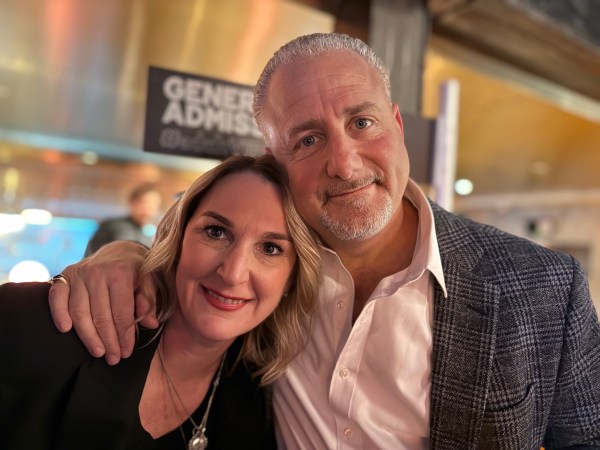I must admit that I’m shocked not to have received as many comments as Nick Catoggio did on his mailbag. Do I need to up my writing pace? Is my humor not deadpan enough? Or should I start concealing my identity? In any event, here are my answers to your excellent questions.
What are some common misconceptions regarding criminal defense lawyers?
There are many, often depending on what kind of criminal defense lawyer you are. As for the white-collar world, two specifically come to mind. First, many people assume you “know” from the get-go if your client is guilty (or not), whether through conversations with him or her (“Did you do it?”) or the circumstances of the alleged offense. But in many cases, it’s not nearly that simple; instead of a sudden confession or single frank conversation, this is often revealed gradually through documents, discussions, information from the government (which can be rather sparingly shared), and so forth.
A second misconception is that I spent much of my time in court. While I had occasional appearances before judges, these were generally for procedural matters or sentencings—not trials. Most of my time was spent preparing motions, drafting proffers to the government (usually with the goal of convincing prosecutors not to charge our client), counseling clients, meeting with co-counsel, or poring over lots and lots (and lots) of documents. Going to court was always a thrill, but it was also a rarity.
How do you feel about the lower court federal judges who anonymously told NBC News that the Supreme Court’s rulings make them feel unsafe?
On the one hand, I get the frustration. Justice Neil Gorsuch’s concurrence in National Institutes of Health v. American Public Health Association, in which he chastised lower court judges for seemingly defying the Supreme Court, struck me as uncharitable. As many judges pointed out, it can be hard to know what defiance is when the ruling you’re supposedly defying was written without explanation and has uncertain precedential value. At the same time, I don’t understand Supreme Court rulings as making lower court judges “unsafe”; my understanding is that the heinous targeting of judges is not for their “defiance” of the justices but of this administration. Nor am I convinced that various anonymous judges taking a swipe at the court is going to yield much tangible good—especially with remarks like the justices “don’t have our backs.” This not only makes the judiciary seem more internally divided than I think it actually is, but feeds distrust in a branch of our government that has, on the whole, stood up remarkably well.
What is your preferred term for the Supreme Court’s “emergency docket,” and why?
I’m going to go with “interim docket,” because (1) it’s most accurate (these are cases not decided on the merits but for interim (that is, temporary) relief, even if the ramifications are permanent), and (2) none of the other names are any good. Perhaps next best is “emergency docket,” but these cases are no longer emergencies. As for “shadow docket,” that admittedly sounds cool, but the orders at issue are not really in the “shadows” (indeed, they’re pretty much what everyone talks about), and we’re finally getting more reasoned decisions. And the other suggestions are either too goofy (“short-order docket”) or too loaded (“equity docket”) to take seriously.
That said, “interim docket” is far from perfect. This is especially true for death penalty cases on this docket, which are genuine emergency applications and anything but “interim.”
What is the future of said docket? Will it become an even more important part of the work of the Court?
I think that for now it’s here to stay, for two reasons. First, the executive branch has gotten used to seeking emergency relief, and—so long as it continues to triumph in this posture—will keep on keeping on. Second, the justices themselves have hardly pushed back, and some have essentially doubled down. As a result, I’d predict that the interim docket will continue to make up both an important part of the court’s work and take up much of its time. Pity those poor Supreme Court clerks.
Why should Supreme Court justices be chosen at random from a list of 1,000 lawyers?
This deserves far more explanation than a mere paragraph or two, but here goes. One, we want talented and capable people in positions of power. Two, we want those people to recognize that they got into such positions based not only on talent but luck—and often lots of it. I’ve spent a good deal of time around judges (for better or worse), and I can tell you that the absolute best among them believe that while they are good at their job, there are plenty of others who could do it just as well. The current system, where justices and judges are nominated from on high, and then treated as gods (or devils) by every legal organization under the sun, encourages the opposite mentality. This is not only corrosive to our judiciary but to a healthy society.
So how would my alternative system work? I’m open to suggestions, but here’s one: The Senate would compile a list of 1,000 lawyers, a lottery would narrow this down to 50, and the president would then agree to pick from those names. Are there all sorts of logistical and procedural issues with this? Most certainly. But, as one commenter noted with regard to his own proposal, it’s not like our current system is particularly sane. And I do think a little more sortition in the realm of politics would be a positive thing.
Why is John F. Kennedy the (second) worst president of the 20th century?
Woodrow Wilson was the worst president of the 20th century. (I think if I don’t say that, Jonah will fire me.) But JFK was the second worst. To put it far too simply, Eisenhower had spent the prior decade managing the Cold War and effectively saving us from nuclear armageddon (like Kevin Williamson, I like Ike!). In a matter of months, Kennedy managed to put all that at risk, first by okaying an obscene operation in Cuba and then getting us into the Cuban Missile Crisis. Defenders of JFK point to him getting us out of the CMC as some sort of victory. But that’s absurd; it was his actions that brought us to the brink of nuclear disaster in the first place.
As for the most important domestic issue of the time, civil rights, JFK was a complete laggard, sandwiched between the Civil Rights Acts of 1957 and 1964. In other moves, JFK made his own brother attorney general and … did little else (his major initiatives, including a tax cut and Medicare bill, all failed in Congress).
Finally, I think character counts. As has now been (all too) well documented, the man engaged in one extramarital affair after another, including with a woman linked to the leader of the Chicago mafia. And then, to top it all off, were the pills.
What is the real problem with Drag Queen Story Hour (at least from the perspective of a gay dad)?
My family has a house up in the Berkshires. One fine summer day, my husband and I (along with my parents) decided to take our two young sons to a community event nearby. When we arrived, one of the events turned out to be a drag queen story hour. In the past I’ve shied away from bringing my children to such events; I don’t see the need to mix politics with playtime. But we decided to give it a go, and, boy, were we disappointed. Essentially, the experience consisted of two drag queens reading several anodyne books to a bunch of bored children (for less than an hour, I might add).
By the end, I despaired for my country having fired more than a single collective brain cell on this matter. Now, this is both sides’ fault: The left has represented drag queen story hour as some sort of political vanguard, while the right has portrayed it as a moral crusade. Neither is true, this debate has made everyone dumber, and we deserve no points.
I see your attempt at logic with the Supreme Court random draw, but then you called My Cousin Vinny overrated. Are you just trying to stir up controversy?
As Justice Samuel Alito would say, “not true” (the stirring-up-controversy part). And I will gladly concede that My Cousin Vinny has some excellent aspects. Marisa Tomei’s acting is fantastic (the outfits, the accent), and she very much deserved that Oscar (controversy aside). Joe Pesci, as always, is hard not to like. But, overall, I just don’t think the movie works. First, aside from a few good chuckles, it’s just not that funny. Second, the middle lags and the ending is saccharine. Finally, MCV continues to spawn more annoying class examples and continuing legal education materials than almost any other legal cultural phenomenon. Fortunately, there is a legal film much funnier, more entertaining, and—let’s face it—far more realistic.
Favorite horror flick?
The GOAT is Texas Chainsaw Massacre; the ending is the most intense 15 or 20 minutes ever put on film. In terms of a favorite, I have a soft spot (if you can call it that) for Rosemary’s Baby. Parts of the film come off a bit dated, but the acting, the plot, and the general atmosphere are timeless. And its campiness is part of the reason I keep coming back.
In terms of more recent (well, recent-ish) horror, I’d nominate the 2008 French film Martyrs. From start to finish, it’s one of the most genuinely horrifying movies out there, and stands as a brilliant critique of mainstream trash cinema like the Saw and Hostel films. But, if I haven’t made this clear, it is not for the faint of heart—even by horror standards.
Favorite metal band?
It would have to be Celtic Frost or Carcass. For those (any?) interested, check out Monotheist or the gloriously-titled Necroticism – Descanting the Insalubrious (which I would imagine is the first and last time those words will be published in The Dispatch).







Please note that we at The Dispatch hold ourselves, our work, and our commenters to a higher standard than other places on the internet. We welcome comments that foster genuine debate or discussion—including comments critical of us or our work—but responses that include ad hominem attacks on fellow Dispatch members or are intended to stoke fear and anger may be moderated.
With your membership, you only have the ability to comment on The Morning Dispatch articles. Consider upgrading to join the conversation everywhere.